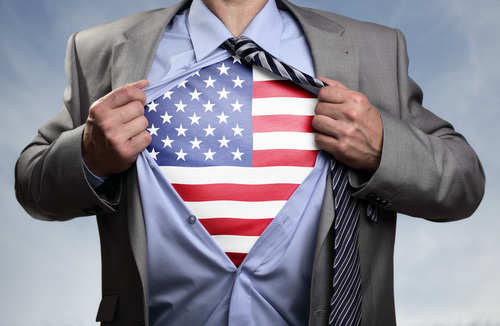The United States is currently a nation without heroes. And that’s a pretty sad thing.
Our culture seems to lack people who are viewed as consensus exemplars — the ones we all look up to, admire, and imitate, the people we all agree represent the good, the noble, the best of us.
Try to think of someone. Give it a go. I’ll wait…
Donald Trump? Barack Obama? Taylor Swift? Hillary Clinton? Beyoncé? Lebron James? Jimmy Carter? Rush Limbaugh? Jon Stewart? Ronald Reagan? Rick Warren? Captain America?
And the winner is? I think it’s the athletes, singers, and fantasy superheroes.
All of this came to mind because of three particular figures in the news:
1) Jimmy Carter announces he has cancer. Tributes pour in from his particular niche tribe of admirers, many of them from my particular subculture of southern progressive Christians. Meanwhile, social media erupts with obscene expressions of hatred for a man voted out of the presidency 35 years ago.
READ: “Crowd packs former President Carter’s Sunday school after his cancer spreads”
2) Donald Trump rocks the house in Mobile, bringing in 20,000 happy mainly white southern Christian types to hear his “make America great again” message. There is no question that he is the star of the presidential campaign so far. Some people appear to be investing their hopes for a great leader onto him. But others could not disagree more…
READ: “Donald Trump and the politics of white male anger”
3) Barack Obama, that former Paragon of Hope and Change, takes a golf vacation, lining up putts assiduously. When he returns, so will conflicts over every single thing he proposes to do. The Nobel Peace Prize winner can’t get past 50% in US approval polls.
Factoid: a global YouGov survey of 25,000 people from 23 countries listed Bill Gates and Angelina Jolie as the most admired man and woman in the world in 2015, followed by Barack Obama, Xi Jinping, Malala Yousafzai, and HIllary Clinton. Your view?
The fall semester has begun. This term I am teaching about people many consider great moral heroes in history. My list includes William Wilberforce, Florence Nightingale, Dietrich Bonhoeffer, Mother Teresa, Martin Luther King, Pope John Paul II, Nelson Mandela, Alexander Solzhenitsyn, Abraham Lincoln, and Mahatma Gandhi.
Would they make your list? Many admire them. But of course four of them were murdered, several were imprisoned, and all were objects of great controversy in their time.
Maybe there are no consensus heroes when people are actually alive; it is only after we murder them that we honor them. Jesus himself fits this description.
No, that’s too stark. Surely there was a time in American history when we had consensus heroes. It used to be that certain major religious leaders played that role. For a long time Billy Graham was among America’s most admired people. America’s pastor.
Today his son Franklin has moved from aid worker to culture warrior and evokes strongly opposing reactions. And closer study of Father Billy has offered up some less than exemplary moments, notably when he was in the company of anti-hero Richard Nixon.
Often our heroes have been war leaders. General Ulysses S. Grant. General Dwight D. Eisenhower. General Colin Powell. The latter could have sailed into the presidency like his war hero predecessors. Instead he tarnished his reputation selling bad intelligence for George W. Bush’s Iraq War.
We do still seem to need our military to play the hero role for us. In our major civic celebrations anyone in uniform gets the hero treatment. Whenever I go to my (miserably bad) Atlanta Braves games they honor someone who has served or now serves in the military. The standing ovation is obligatory, and seems sincere. A nation in need of heroes turns to its military — even if the soldiers themselves would rather be left alone to watch the game.
This week three Americans and a Brit who broke up a terror attack on the Amsterdam to Paris train are (rightly) being honored as heroes. They will, at least for a few days, serve as consensus heroes for us.
Still, my observation remains on the table. We are a nation almost entirely without heroes today. Because we don’t agree on what’s worth admiring, we can’t agree on who’s worth admiring. A divided nation divides on heroes, too. It’s worth noticing.
Look me up on Facebook and Twitter. All relevant, civil comments are welcome.





